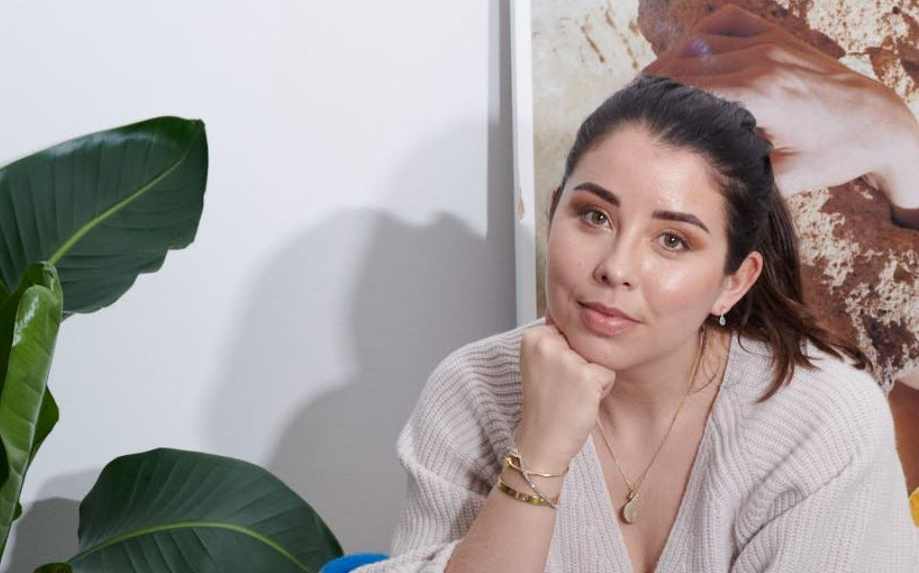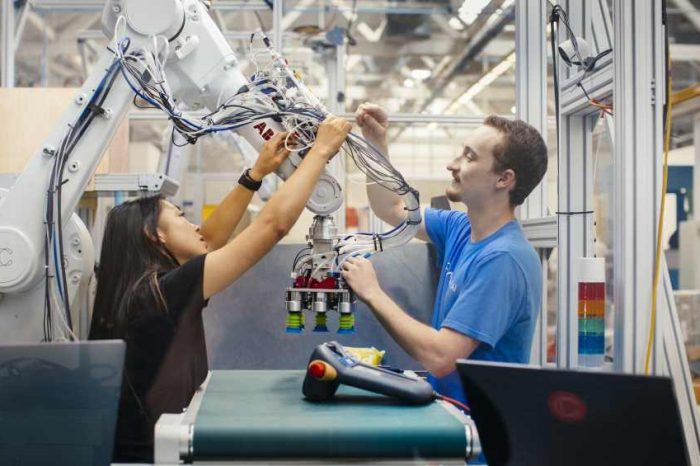Why are female founders ignored by VCs?

In 2020, UK venture capital firms invested £12 billion into businesses across the nation. By far the largest total value of investment across the whole of Europe, with Germany ranking second, but some way behind at £5.6bn.
One such startup that benefited from this VC investment was Yoppie, the pioneer of personalized period care, which offers a subscription-based service delivering high-quality menstrual care products through your letterbox.
Having already raised £1.2 million in seed funding in 2018 while heavily pregnant, founder Daniella Peri (pictured) recently secured a further £3.4m in investment for Yoppie via a number of notable investors, including hyper-growth VCs, Vostock New Ventures, and Colle Capital.
While Yoppie’s business proposition clearly speaks for itself, Daniella could consider herself lucky to have received any investment at all, if the gender balance of VC investment in the UK is anything to go by.
Previous research has found that for every £1 of VC investment within the UK, all-female founder teams get less than 1p. Mixed-gender teams get 10p, while all-male founder teams receive 89p.
Yoppie applied these jaw-dropping statistics to the level of VC investment seen in 2020 and found that of the £12bn of UK VC investment that was invested in 2020, companies with an all-female founder team would have received just £120.1m.
Mixed-gender teams would have seen £1.2bn worth of investment but their all-male counterparts, on the other hand, would have seen investment just shy of £10.7bn.
This shocking imbalance was previously highlighted in a study by PitchBook which found that of approximately 7,541 VC deals made between January 2007 and April 2018, just 4.3% were all-female founded businesses, with all-male founded businesses accounting for 83.7% of deals.
But is this imbalance down to VC gender bias or a lack of female founders to begin with?
The founder of Yoppie, Daniella Peri, believes it could be the latter. “Gender politics are a hot topic within the workplace and the reality is women are generally paid less, not to mention that a far smaller proportion of roles at the highest level are occupied by women.
The data suggests that female founders are also far less likely to receive VC funding when looking to grow their own business, but in my experience, this is undoubtedly due to a lack of female founders rather than an unwillingness to invest by VC firms.
The road to gaining investment is a long tough journey and many fail to complete it regardless of gender. You need to find the right people, at the right time, and the deal presented needs to work for you as a business as much as it does for those investing. We didn’t set out to find investors who wanted to balance their books with an equal number of male and female founders, we secured funding because we’re a great business, with amazing people and the ability to execute in order to build traction.
However, as a female founder, I believe it was my responsibility to educate investors so that they fully understood the market and the opportunities that women’s health presents on a long-term basis.
I would urge any woman who wants to start their own business to do the same, as the more great female founders we have, the better chance of increasing the number of females funded.”
| Table shows the total value of venture capital investments across Europe in 2020 | ||
| Location | Total value of venture capital investments (€) | Total value of venture capital investments (£) |
| United Kingdom | € 13,500,000,000 | £12,010,950,000 |
| Germany | € 6,300,000,000 | £5,605,110,000 |
| France | € 5,600,000,000 | £4,982,320,000 |
| Sweden | € 2,900,000,000 | £2,580,130,000 |
| Switzerland | € 1,800,000,000 | £1,601,460,000 |
| Netherlands | € 1,800,000,000 | £1,601,460,000 |
| Finland | € 1,000,000,000 | £889,700,000 |
| Ireland | € 950,000,000 | £845,215,000 |
| Belgium | € 850,000,000 | £756,245,000 |
| Spain | € 790,000,000 | £702,863,000 |
| Italy | € 590,000,000 | £524,923,000 |
| Denmark | € 520,000,000 | £462,644,000 |
| Norway | € 460,000,000 | £409,262,000 |
| Estonia | € 360,000,000 | £320,292,000 |
| Russia | € 280,000,000 | £249,116,000 |
| Austria | € 210,000,000 | £186,837,000 |
| Portugal | € 70,000,000 | £62,279,000 |
| Data sourced from Statista | ||
| Founding team gender | £1 of UK VC Investment | % of £1 of UK VC Investment | Sum of UK VC Investment in 2020 |
| > All-female founder teams get less than 1p | £0.01 | 1% | £120,109,500 |
| > All-male founder teams get 89p | £0.89 | 89% | £10,689,745,500 |
| > Mixed-gender teams get 10p | £0.10 | 10% | £1,201,095,000 |
| Total | £1.00 | 100% | £12,010,950,000 |
| Data on the split of UK VC investment by founding team gender sourced from British Business Bank | |||
Data on the split of UK VC investment by founding team gender sourced from British Business Bank.
Founded in 2016 in London, England, Yoppie helps women get access to quality products, align with their menstrual cycle. The startup provides personalized menstrual care solutions that enable people to take control of their menstrual health.
Yopppie was born out of the realization that there was a lack of education, resources, and quality products for people to better manage and understand their bodily cycles – especially their menstrual cycle. So Yoppie decided it was time to create a new, modern model for how people access menstrual care.
By offering personalized product recommendations, easy-to-understand, science-backed health content, high-quality menstrual care products, and letterbox delivery – Yoppie and its subscription services are paving the way for a future where menstrual care management conveniently fits into the lifestyle of today’s modern woman.

